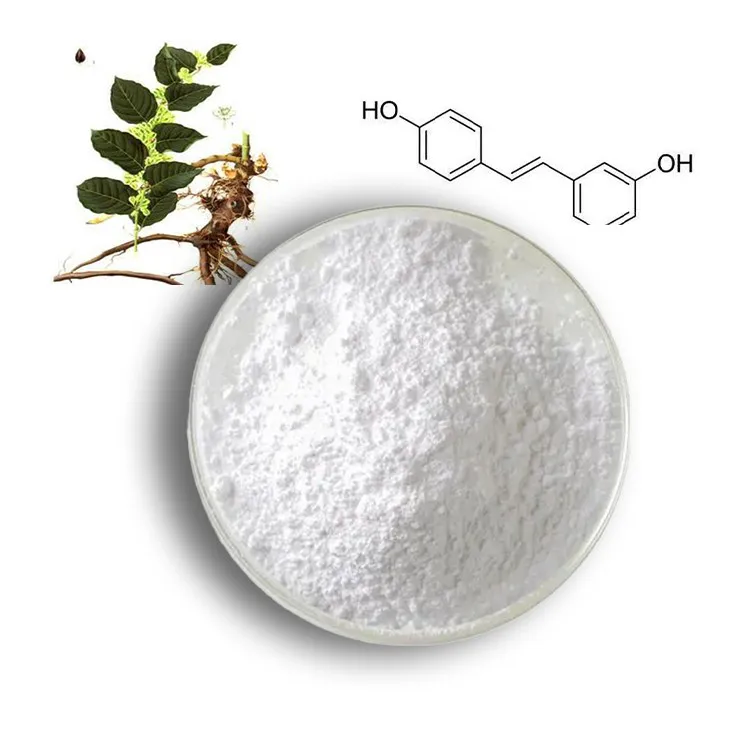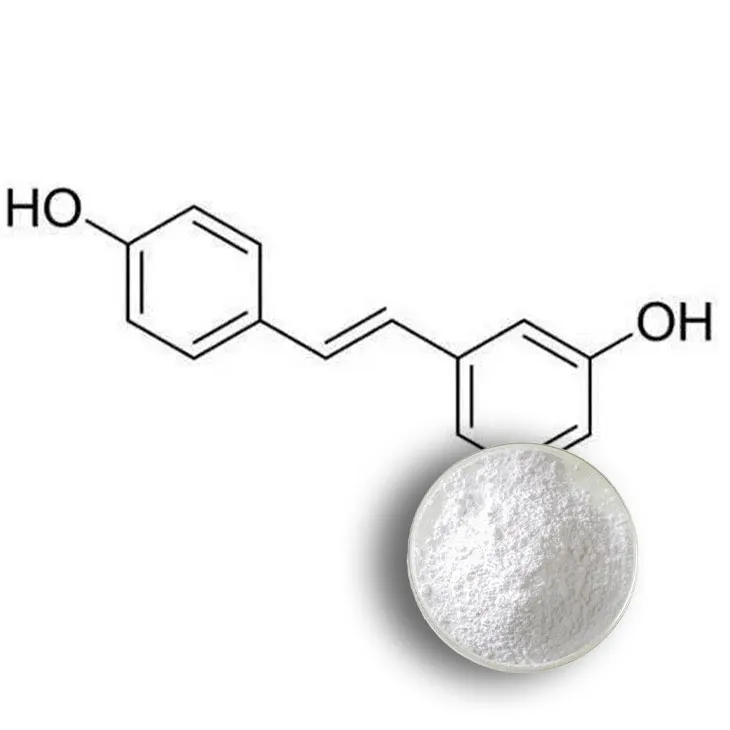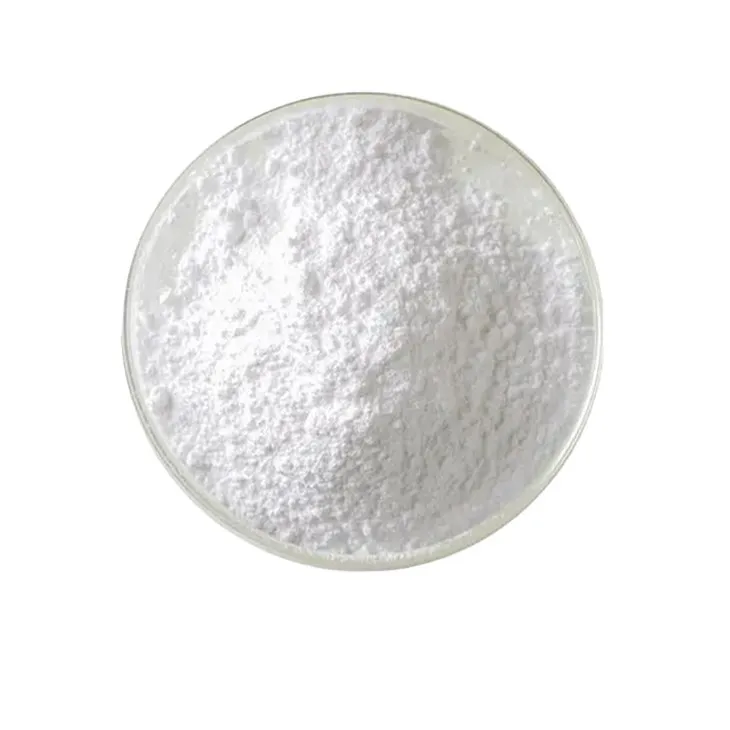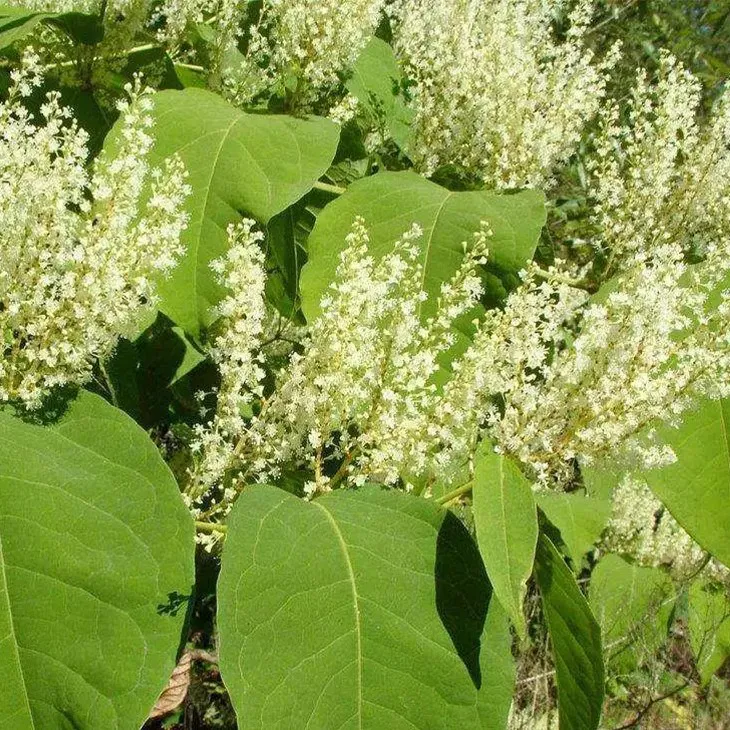- 0086-571-85302990
- sales@greenskybio.com
What is resveratrol extract and why is it used on the skin?
2024-11-11

1. Introduction to Resveratrol extract
Resveratrol extract is a natural compound that has been the focus of much research in recent years, especially in the field of skincare. It is primarily sourced from plants such as grapes, berries, and peanuts. This compound has a wide range of properties that make it highly valuable for various applications, and its use in skincare is becoming increasingly popular.

2. Antioxidant Properties of Resveratrol
2.1 Free Radicals and Skin Damage
One of the most significant aspects of Resveratrol extract is its antioxidant power. In the context of the skin, free radicals play a major role in causing damage. Free radicals are highly reactive molecules that can be generated from both internal and external sources. Internally, normal metabolic processes within the body can produce free radicals. Externally, factors like UV rays from the sun and cigarette smoke are major sources of free radicals. These free radicals can attack skin cells, leading to a variety of problems.
2.2 How Resveratrol Fights Free Radicals
Resveratrol acts as a powerful antioxidant, which means it has the ability to neutralize these free radicals. When applied to the skin, resveratrol donates electrons to the free radicals, thereby stabilizing them and preventing them from causing further damage. This antioxidant effect is crucial for maintaining the health and integrity of the skin. It helps in reducing the signs of premature aging, such as wrinkles, fine lines, and dull skin. By protecting the skin cells from free radical damage, resveratrol also helps in maintaining the skin's natural elasticity and firmness.

3. Role in Skin Hydration
3.1 The Importance of Skin Hydration
Proper skin hydration is essential for healthy - looking skin. When the skin lacks moisture, it can become dry, flaky, and itchy. This not only affects the appearance of the skin but can also lead to more serious skin conditions over time. Maintaining the skin's moisture balance is a complex process that involves various factors, and resveratrol extract has been found to play an important role in this regard.
3.2 How Resveratrol Helps with Hydration
Resveratrol can influence the skin's lipid barrier function. The lipid barrier of the skin is responsible for preventing water loss from the skin. By enhancing the function of this barrier, resveratrol helps the skin to retain moisture more effectively. This results in a more hydrated and supple skin. Additionally, it may also stimulate the production of certain substances in the skin that are involved in maintaining hydration, such as hyaluronic acid.

4. Anti - microbial Properties
4.1 Skin Infections and Microorganisms
The skin is constantly exposed to a variety of microorganisms, including bacteria and fungi. Some of these microorganisms can cause infections or skin disorders if they manage to colonize the skin. For example, acne is often associated with the overgrowth of certain bacteria on the skin. Fungal infections can also occur, especially in areas where the skin is warm and moist, such as the feet or groin area.
4.2 Resveratrol's Anti - microbial Effects
Resveratrol has shown anti - microbial properties, which means it can help protect the skin from these harmful microorganisms. It can inhibit the growth and reproduction of bacteria and fungi, reducing the risk of infections. This is beneficial not only for treating existing skin conditions but also for preventing future infections. By maintaining a healthy microbial balance on the skin, resveratrol contributes to overall skin health.

5. Other Potential Benefits for the Skin
5.1 Anti - Inflammatory Effects
Inflammation is a common response in the skin, often associated with various skin conditions such as eczema, psoriasis, or allergic reactions. Resveratrol has been shown to have anti - inflammatory properties. It can reduce the production of inflammatory mediators in the skin, thereby alleviating inflammation. This can help in reducing redness, swelling, and discomfort associated with skin inflammation.
5.2 Promotion of Collagen Synthesis
Collagen is a crucial protein in the skin that provides structure and firmness. As we age, the production of collagen in the skin decreases, leading to the appearance of wrinkles and sagging skin. Resveratrol may stimulate the synthesis of collagen in the skin. By promoting collagen production, it can help in maintaining the skin's firmness and elasticity, reducing the signs of aging.
6. Incorporating Resveratrol in Skincare Routines
6.1 Available Forms of Resveratrol in Skincare
Resveratrol is available in various forms in skincare products. It can be found as a pure extract, which is often used in more concentrated serums or treatments. It can also be incorporated into creams, lotions, and masks. Some products may combine resveratrol with other beneficial ingredients to enhance its effectiveness.
6.2 How to Use Resveratrol - Containing Products
When using resveratrol - containing skincare products, it is important to follow the instructions provided. In general, these products should be applied to clean, dry skin. For serums, a few drops can be gently patted onto the face and neck. Creams and lotions can be massaged into the skin in a circular motion until fully absorbed. It is also recommended to use these products consistently as part of a daily skincare routine for best results.
7. Conclusion
Resveratrol extract is a highly valuable compound for skincare. Its antioxidant, hydrating, anti - microbial, anti - inflammatory, and collagen - promoting properties make it a versatile ingredient in the fight against various skin problems. As research continues to uncover more about the benefits of resveratrol, it is likely that its use in skincare will become even more widespread. By incorporating resveratrol - containing products into our skincare routines, we can take an important step towards achieving healthier, more youthful - looking skin.
FAQ:
1. What are the main sources of resveratrol extract?
Resveratrol extract mainly comes from certain plants. Grapes are a well - known source, especially in the skins of red grapes. Berries like blueberries and cranberries also contain resveratrol. Additionally, peanuts are another source of this compound.
2. How does resveratrol extract protect the skin from UV rays?
Resveratrol extract protects the skin from UV rays through its antioxidant properties. UV rays can generate free radicals in the skin, and resveratrol, being a powerful antioxidant, can neutralize these free radicals. By doing so, it helps prevent the damage that these free radicals can cause to skin cells, such as DNA damage and premature aging, which are often associated with UV exposure.
3. Can resveratrol extract be used for all skin types?
Generally, resveratrol extract can be used for all skin types. For dry skin, it helps with hydration as mentioned before. For oily skin, its antioxidant and anti - microbial properties can be beneficial in maintaining skin health by preventing oxidative stress and infections. However, as with any skincare ingredient, some individuals may be sensitive to it, so a patch test is advisable before full - scale use.
4. How long does it take to see the effects of resveratrol extract on the skin?
The time it takes to see the effects of resveratrol extract on the skin can vary. For some people, they may notice an improvement in skin hydration within a few days to a week if they are using products containing resveratrol. However, for more significant anti - aging effects like reduction in fine lines and wrinkles, it may take several weeks to months of consistent use. This is because skin cell turnover and the repair of underlying damage occur over time.
5. Are there any side effects of using resveratrol extract on the skin?
While resveratrol extract is generally considered safe for topical use on the skin, some people may experience mild side effects. These can include skin irritation, redness, or a mild allergic reaction. This is more likely to occur in individuals with sensitive skin. As mentioned before, a patch test can help determine if a person is likely to have an adverse reaction.
Related literature
- The Role of Resveratrol in Skin Health: A Review"
- "Resveratrol: A Promising Ingredient for Skincare"
- "Antioxidant and Skin - Protecting Properties of Resveratrol"
- ▶ Hesperidin
- ▶ Citrus Bioflavonoids
- ▶ Plant Extract
- ▶ lycopene
- ▶ Diosmin
- ▶ Grape seed extract
- ▶ Sea buckthorn Juice Powder
- ▶ Fruit Juice Powder
- ▶ Hops Extract
- ▶ Artichoke Extract
- ▶ Mushroom extract
- ▶ Astaxanthin
- ▶ Green Tea Extract
- ▶ Curcumin
- ▶ Horse Chestnut Extract
- ▶ Other Product
- ▶ Boswellia Serrata Extract
- ▶ Resveratrol
- ▶ Marigold Extract
- ▶ Grape Leaf Extract
- ▶ New Product
- ▶ Aminolevulinic acid
- ▶ Cranberry Extract
- ▶ Red Yeast Rice
- ▶ Red Wine Extract
-
Buckthorn bark extract
2024-11-11
-
Carrageenan Extract Powder
2024-11-11
-
Bayberry Extract
2024-11-11
-
Pine bark Extract Powder
2024-11-11
-
Nettle Root Extract
2024-11-11
-
Shikone Extract
2024-11-11
-
Jujube Extract
2024-11-11
-
Gynostemma pentaphyllum extract
2024-11-11
-
Diosmin
2024-11-11
-
Lycopene
2024-11-11





















